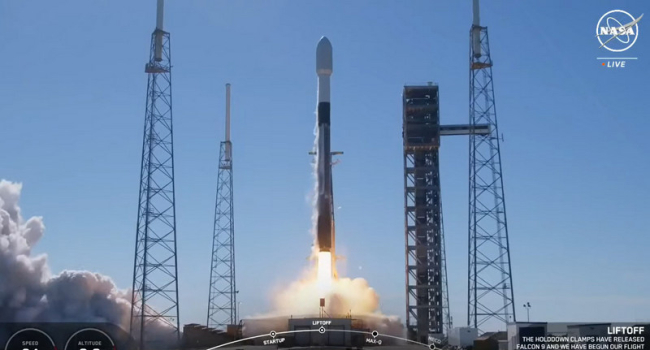
SpaceX launches Cygnus cargo spacecraft for the first time: What does it carry?
The company SpaceX has launched the Cygnus cargo spacecraft by Northrop Grumman into orbit, which will deliver over 3.7 tons of various cargoes to the International Space Station. The Cygnus NG-20 mission marks the first launch of this spacecraft on the SpaceX Falcon 9 rocket. It took off from the Cape Canaveral Space Force Station in Florida on January 30 at 12:07 local time (21:07 Yerevan time).
This launch initiates the 20th Cygnus cargo mission. SpaceX did not participate in the previous 19 missions, all of which were carried out using Antares or Atlas V rockets. Northrop Grumman named this spacecraft Cygnus in honor of NASA astronaut Patricia Robertson, who tragically died in a plane crash in 2001. She was selected as an astronaut in 1998 and was scheduled to fly to the ISS in 2002.
Eight minutes and 20 seconds after liftoff, the Falcon 9 rocket's first stage successfully returned to Earth, landing softly at Cape Canaveral. According to SpaceX's mission description, this marked the 10th launch and landing for this particular first-stage rocket.
The Cygnus spacecraft separated from the Falcon 9's second stage in low Earth orbit approximately 14 minutes and 45 seconds after liftoff. The cargo spacecraft then began its journey to the International Space Station (ISS). If all goes according to plan, Cygnus will arrive at the ISS at 13:20 Yerevan time on Thursday, February 1. After that, Cygnus will spend about six months docked to the ISS before descending back to Earth to burn up in the Earth's atmosphere.
Onboard the cargo spacecraft are over 3,720 kg of supplies and scientific equipment. Among the scientific equipment is a set for an experiment on cartilage growth, which could aid in addressing joint injuries and diseases on Earth. Additionally, there is a project by the European Space Agency that involves testing 3D metal printing in microgravity conditions.
One of the experiments aboard Cygnus, named Kentucky Reentry Probe Experiment-2, will collect data during the spacecraft's descent into Earth's atmosphere. It will perform measurements to demonstrate the thermal protection system of spacecraft and their contents during reentry into Earth's atmosphere, which is challenging to replicate in ground simulators.
Cygnus is one of the three cargo spacecraft currently servicing the ISS, alongside SpaceX's Dragon and the Russian Progress spacecraft. Progress and Cygnus are disposable spacecraft, while Dragon is reusable, enduring reentry into Earth's atmosphere and gently landing in the ocean with parachutes.
- Related News
- Wheel of Death: new method will help astronauts stay fit in low gravity
- Due to anomalies of Orion spacecraft, lunar exploration program may be delayed for years։ NASA
- TAO Observatory: World's highest telescope to study evolution of galaxies and exoplanets
- Powerful M9.5 solar flare causes radio blackout in Pacific Ocean
- What will happen to the Earth if the Moon disappears?
- Key to conquering the Red Planet: Why is NASA studying solar storms on Mars?
- Most read
month
week
day
- Digital Julfa Network is launching a pan-Armenian centre in the metaverse, on the Fastexverse virtual platform 929
- Xiaomi unveils exclusive Redmi Note 13 Pro+ dedicated to Messi and Argentina national team 815
- Sparkles: Boston Dynamics unveils a furry robot dog that can dance (video) 802
- Is there a ninth planet in the solar system? Scientists find new evidence 679
- Smartphone catches fire in child's hand in Russia 658
- What will happen to the Earth if the Moon disappears? 656
- How to understand how protected a smartphone is from water and dust? 639
- World's largest 3D printer was created in USL It prints 29 meter-long structures 623
- iPhone 16 may get colored matte glass back panel, 7 colors 623
- New iPad Pro to receive M4 chip and to be more powerful than Apple computers 613
- Archive
